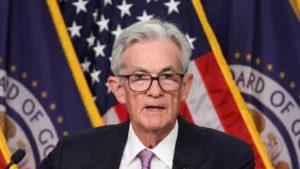
The recent U.S. presidential election, resulting in Donald Trump’s re-election, has brought a new dynamic to the American political landscape. With a focus on conservative policies, Trump’s victory has drawn attention domestically and internationally, particularly regarding the potential implications for U.S. policies on human rights, healthcare, and immigration. Trump’s campaign strategy effectively rallied key demographic groups and garnered endorsements from influential figures and tech entrepreneurs, solidifying his appeal among certain voter bases.
Global Reactions and Human Rights Concerns
Following Trump’s re-election, UN leaders voiced concerns about the future of global human rights. With a history of supporting more conservative policies, his administration may influence U.S. positions on international human rights agreements and climate commitments. The re-election has also spurred renewed debates within the United Nations, as leaders consider the implications of U.S. policy changes for international cooperation on critical issues such as environmental protections and humanitarian aid.
Shifts in Domestic Policy Priorities
Trump’s administration is expected to pursue significant policy shifts in healthcare, immigration, and judicial appointments. With a Republican majority in the Senate, his team will likely face fewer barriers to implementing these changes, especially with recent legislative efforts focused on healthcare and immigration reform. Key players in Trump’s cabinet are poised to impact these areas, aiming to reshape how Americans experience fundamental aspects of daily life, from healthcare to personal freedoms. The emphasis on conservative judicial appointments further suggests long-lasting effects on federal policy.
Strengthened Relationships with Key Allies and Endorsements
Trump’s support from influential figures, including tech magnates and public figures, highlights an alignment between his administration and influential economic leaders. This alliance might direct new technology and economic policies to support domestic business interests and potentially reshape regulatory frameworks for major tech companies. Figures like Elon Musk and other influential tech voices amplified Trump’s campaign messages, indicating strong backing from business leaders who may see their interests further supported under the new administration.
Policy on Immigration and Border Security
Trump’s approach to immigration remains a prominent focal point, with potential changes aimed at tightening border security and revising pathways to citizenship. This stance resonates with his supporters who prioritize national security and economic stability. However, advocacy groups and policymakers are already preparing for potential challenges to these policies, citing concerns about immigrant rights and workforce impacts.
The Impact on the U.S. Economy
Economically, Trump’s administration is anticipated to focus on policies that support job growth, particularly in manufacturing and energy sectors. The administration may also emphasize reducing regulations on corporations, which could bolster certain industries but has also raised questions about environmental protections. Additionally, Trump’s economic plans might continue to prioritize reducing corporate tax burdens, which could have implications for domestic economic growth and employment rates.
Conclusion
Donald Trump’s re-election has undeniably set the stage for a period of transformation in U.S. politics. As his administration moves forward, the impacts of his policies on healthcare, immigration, and the economy will become clearer, shaping both the domestic and global political landscape. The focus on conservative values and policies will define the next four years, impacting not only the American people but also the U.S.’s role on the world stage.
Image credit – apnews.com


